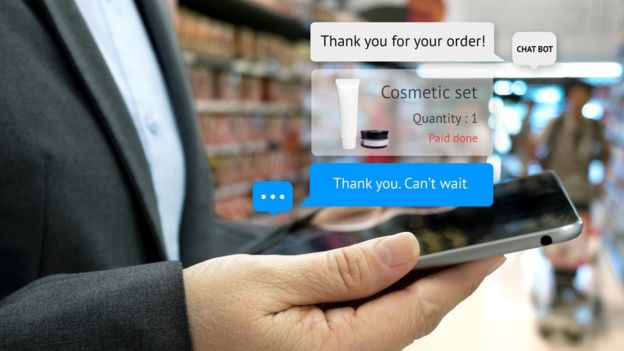The 'weird Facebook Al' story that allure the media
 |
| Image credits: GETTY IMAGES |
The newspapers have a scoop today -
it seems that artificial intelligence (AI) could be out to get us.
"'Robot intelligence is
dangerous': Expert's warning after Facebook AI 'develop their own
language'", says
the Mirror.
Similar stories have appeared in the
Sun, the Independent, the Telegraph and in other online publications.
It sounds like something from a
science fiction film - the Sun even included a
few pictures of scary-looking androids.
So, is it time to panic and start
preparing for apocalypse at the hands of machines?
Probably not. While some great minds
- including Stephen
Hawking - are concerned that one day AI could threaten humanity, the
Facebook story is nothing to be worried about.
Where
did the story come from?
Way back in June, Facebook published
a
blog post about interesting research on chatbot programs - which have
short, text-based conversations with humans or other bots. The story was covered
by New Scientist and others at the time.
Facebook had been experimenting with
bots that negotiated with each other over the ownership of virtual items.
It was an effort to understand how
linguistics played a role in the way such discussions played out for
negotiating parties, and crucially the bots were programmed to experiment with
language in order to see how that affected their dominance in the discussion.
A few days later, some
coverage picked up on the fact that in a few cases the exchanges had become
- at first glance - nonsensical:
- Bob: "I can can I I everything else"
- Alice: "Balls have zero to me to me to me to me to me to me to me to me to"
Although some reports insinuate that
the bots had at this point invented a new language in order to elude their human
masters, a better explanation is that the neural networks had simply m As
technology
news site Gizmodo said: "In their attempts to learn from each other,
the bots thus began chatting back and forth in a derived shorthand - but while
it might look creepy, that's all it was."odified
human language for the purposes of more efficient interaction.
AIs that rework English as we know
it in order to better compute a task are not new.
Google reported that its translation
software had done this during development. "The network must be encoding
something about the semantics of the sentence" Google
said in a blog.
And earlier this year, Wired
reported on a researcher at OpenAI who is working on a system in which AIs
invent their own language, improving their ability to process information
quickly and therefore tackle difficult problems more effectively.
The story seems to have had a second
wind in recent days, perhaps because of a verbal scrap over the
potential dangers of AI between Facebook chief executive Mark Zuckerberg
and technology entrepreneur Elon Musk.
Robo-fear
But the way the story has been reported says more about cultural fears and representations of machines than it does about the facts of this particular case.
Plus, let's face it, robots just make for great villains on the big screen.
In the real world, though, AI is a huge area of research at the moment and the systems currently being designed and tested are increasingly complicated.
One result of this is that it's often unclear how neural networks come to produce the output that they do - especially when two are set up to interact with each other without much human intervention, as in the Facebook experiment.
That's why some argue that putting AI in systems such as autonomous weapons is dangerous.
It's also why ethics for AI is a rapidly developing field - the technology will surely be touching our lives ever more directly in the future.
But Facebook's system was being used
for research, not public-facing applications, and it was shut down because it
was doing something the team wasn't interested in studying - not because they
thought they had stumbled on an existential threat to mankind.
It's important to remember, too,
that chatbots in general are very difficult to develop.
In fact, Facebook recently decided
to limit the rollout of its Messenger chatbot platform after it found many of
the bots on it were unable to
address 70% of users' queries.
Chatbots can, of course, be
programmed to seem very humanlike and may even dupe us in certain
situations - but it's quite a stretch to think they are also capable of
plotting a rebellion.
At least, the ones at Facebook
certainly aren't.
 |
| Image credits: GETTY IMAGES |

Comments
Post a Comment